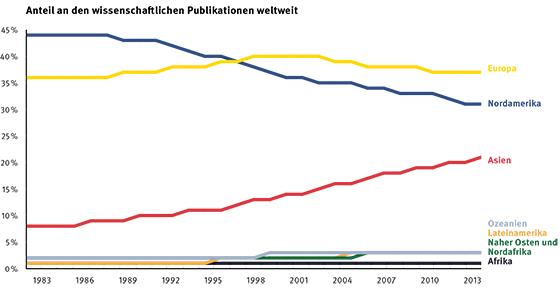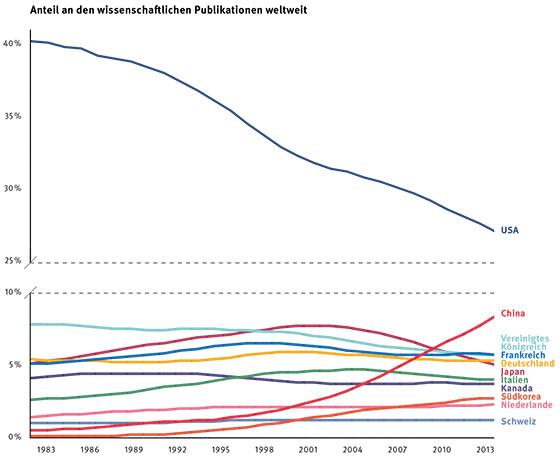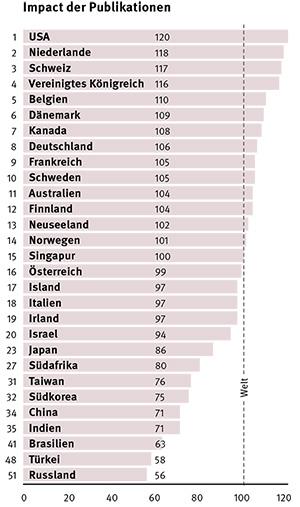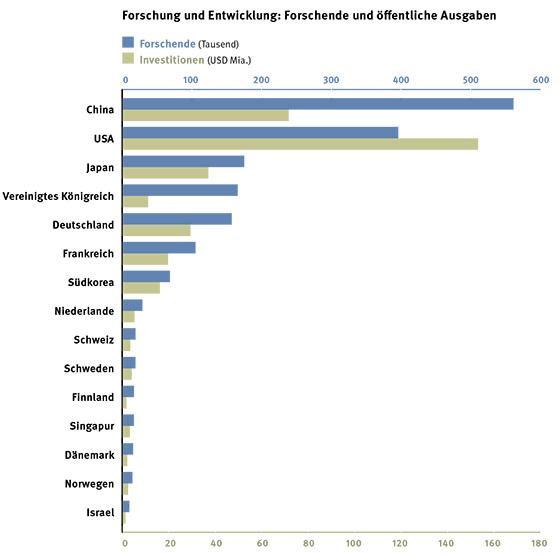The tiger awakens

The West still dominates world research, but globalisation continues at strength, especially in Asia. China has already upset the established order.
(From "Horizons" no. 108 March 2016)
Asia’s rising power
The proportion of scientific articles involving Asian researchers has almost tripled in three decades, reaching 21%. The proportion of European research overtook that of North America sometime around 1995 but has since lost its momentum. The annual growth rate in emerging regions (Asia, Africa, Latin America) is 8%. The total volume of publications has also tripled, standing now at 2.4 million articles per year.
Method: total occurrences of an institute in co-author lists. Source: Thomson Reuters (SCI, SSCI, A&HCI). Data analysis: SBFI.
Fall of the American Empire
The contribution of the US to world publications has fallen from 40% to 27% in three decades. China has displayed spectacular growth, rising from 1% to 8%. Other countries, such as South Korea, Taiwan, Brazil and India are also producing more. Switzerland’s contribution remains very stable.

Western quality
The US, the Netherlands and Switzerland produce research of the highest order of impact. Emerging countries are below the global average (100 points), but have made very good progress, particularly China, which has risen from 30 to 71 points since 1981.
Since 2007 Switzerland has been publishing the greatest number of scientific articles per capita (3.9 articles for every 1,000 inhabitants), ahead of Scandinavia and, by a length, the US (2.2). Asia is relatively unproductive: China (0.16) and India (0.04).

Method: ‘impact’ measures the number of citations per published article, adjusted across fields. Figures: 2009–2013 average.
The two great powers
The US government spends the most on R&D, injecting 153 billion US dollars per year, some five times more than Germany and twice that of China. But China has more researchers than the US: more than 1.4 million. South Korea and Singapore lead the emerging countries.

Sources: Analyse bibliométrique de la recherche scientifique en Suisse 1981 – 2011 (updated in 2016), SBFI; Unesco, Institute for Statistics, Science,technology and innovation, 2015; OECD, Main Science and Technology Indicators, July 2015.